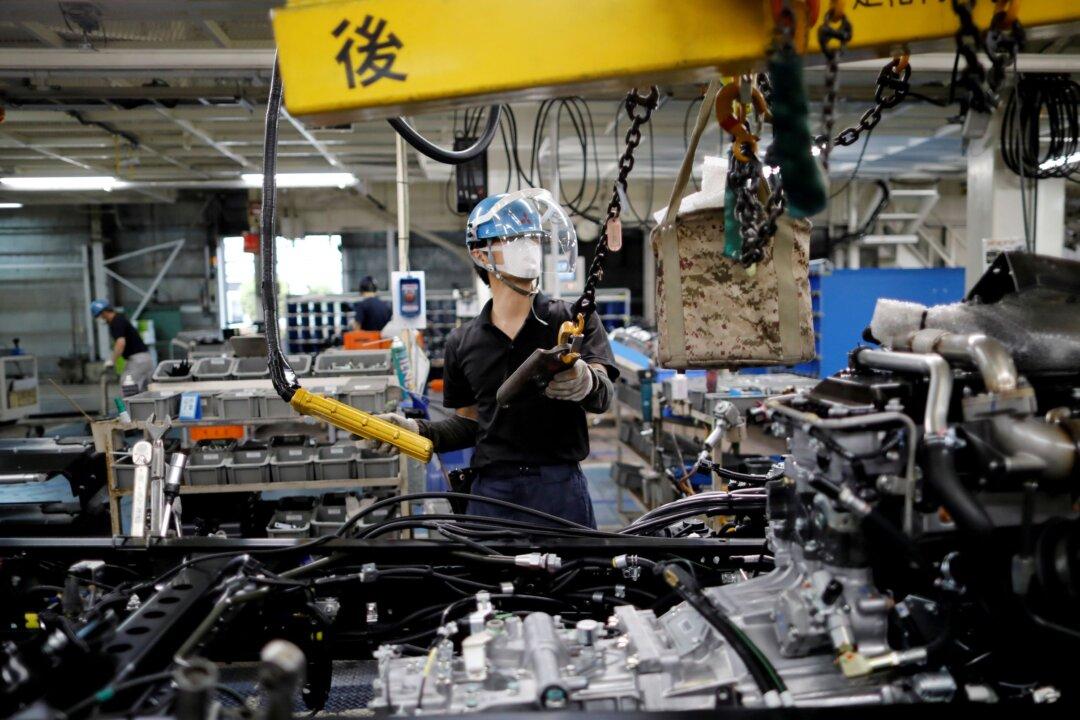TOKYO—Japan’s factory activity grew at the slowest pace in eight months in September as output and orders contracted, while that of the services sector remained in its downturn, underscoring the protracted impact of the coronavirus pandemic.
The au Jibun Bank Flash Japan Manufacturing Purchasing Managers’ Index (PMI) slipped to a seasonally adjusted 51.2 in September from a final 52.7 in the previous month, marking the slowest growth since January.





